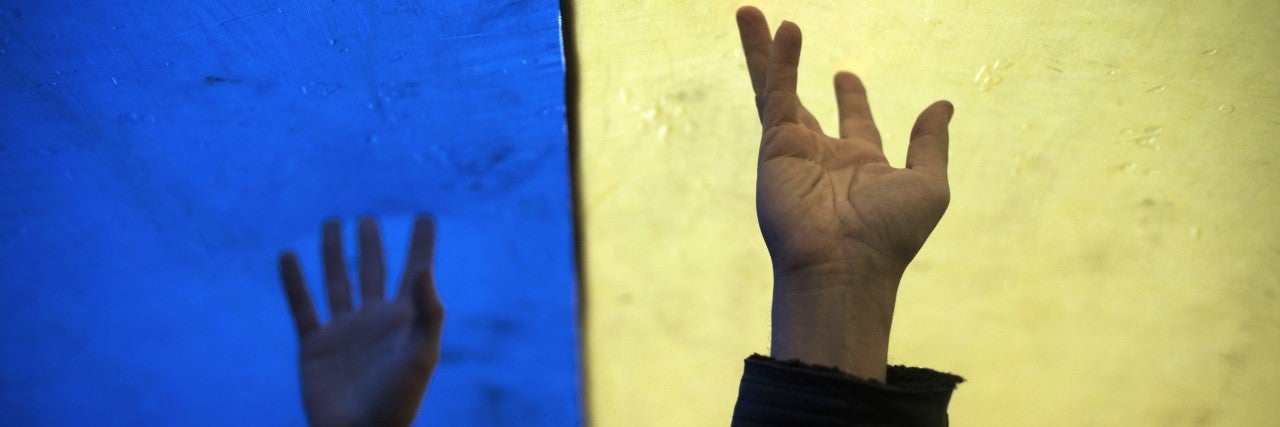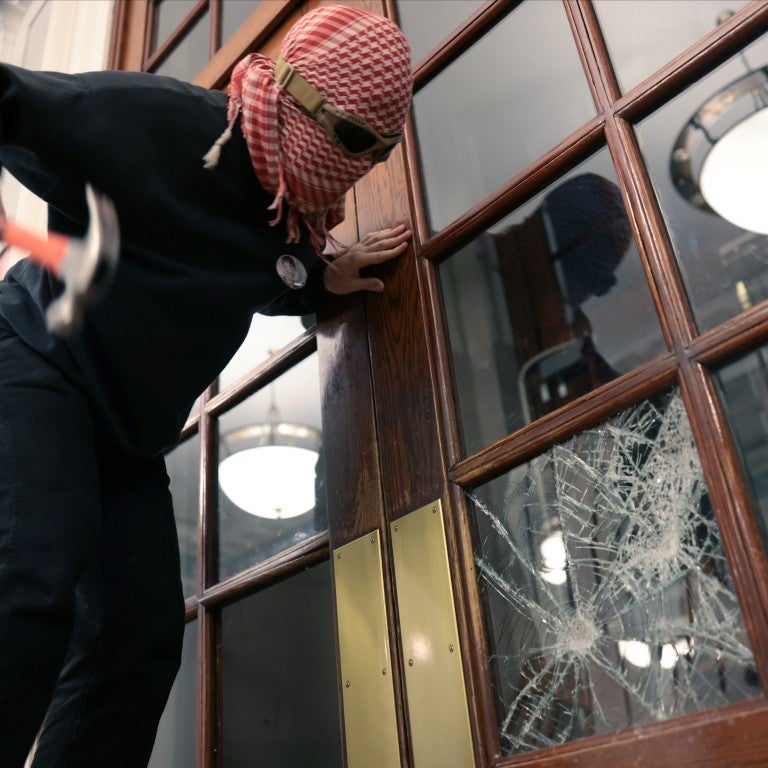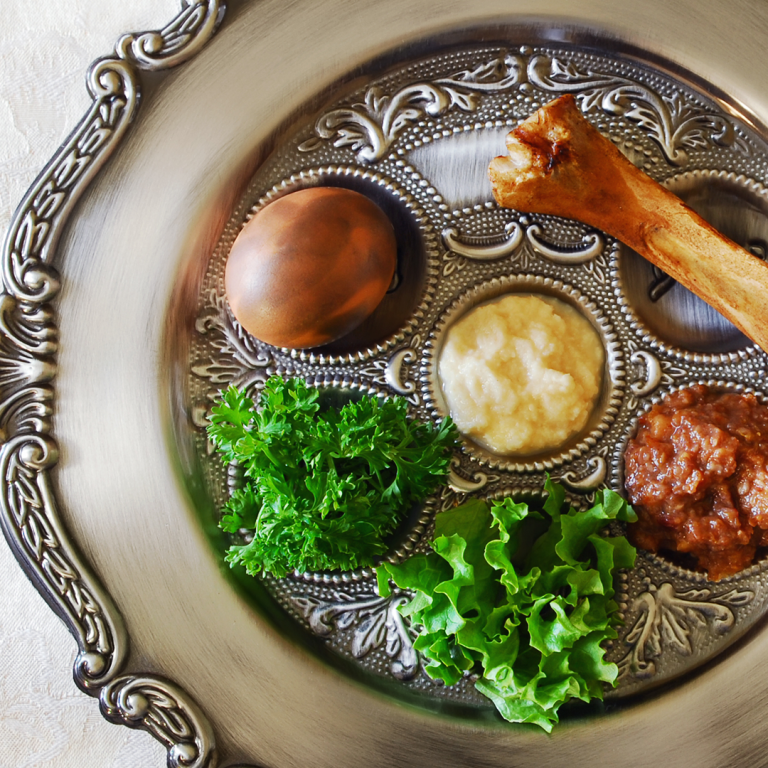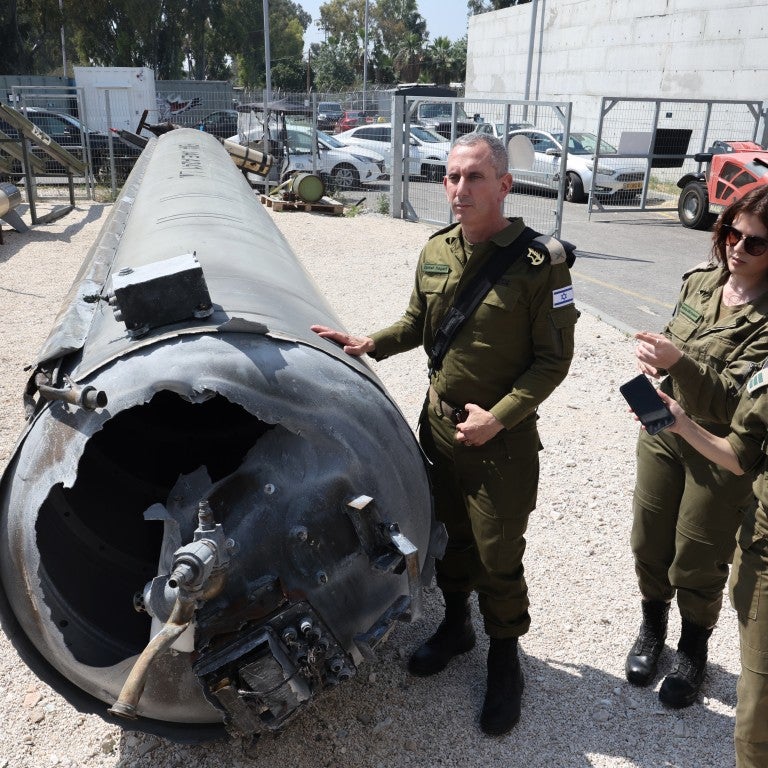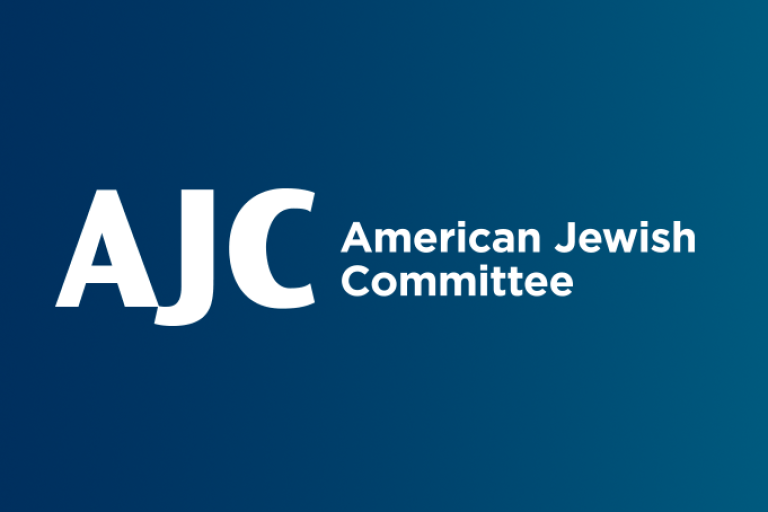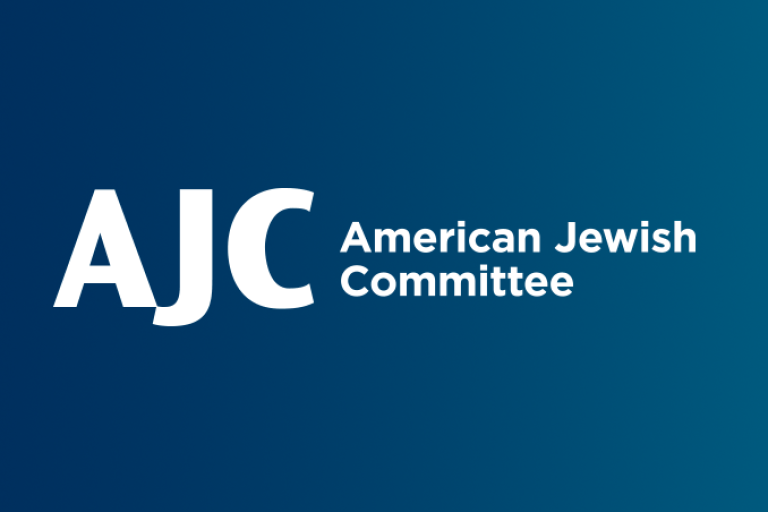February 22, 2023
One year after Russia’s illegal invasion of Ukraine, Vladislav Davidzon, European culture correspondent for Tablet Magazine, shares what he’s witnessed as a war correspondent on the frontlines, and predicts the future for his beloved country and the Jewish community he's proud to call home.
We last spoke to Davidzon hours before the Russia-Ukraine war began, when he was on the ground in Kyiv – listen now to his dispatch a year on, as he joins us live from our New York studio.
*The views and opinions expressed by guests do not necessarily reflect the views or position of AJC.
Episode Lineup:
- (0:40) Vladislav Davidzon
Show Notes:
Read:
- What You Need to Know About the Wagner Group’s Role in Russia’s War Against Ukraine
- Preorder: Jewish-Ukrainian Relations and the Birth of a Political Nation
Watch:
- Kiyv Jewish Forum:
- Ted Deutch, AJC CEO, Addresses Kyiv Jewish Forum 2023
- Panel: Ukraine as the Israel of Europe with Simone Rodan-Benzaquen, Managing Director of AJC Europe, Bernard Henry Levi, philosopher, and Josef Joffe, Stanford University
Listen:
- Podcast episode with Vladislav Davidzon, recorded February 23, 2022: Live from Kyiv: The Future of Ukraine and its Large Jewish Community
- Our most recent podcast episode: How Rising Antisemitism Impacts Jews on College Campuses
Follow People of the Pod on your favorite podcast app, and learn more at AJC.org/PeopleofthePod
You can reach us at: peopleofthepod@ajc.org
If you’ve enjoyed this episode, please be sure to tell your friends, tag us on social media with #PeopleofthePod, and hop onto Apple Podcasts to rate us and write a review, to help more listeners find us.
Transcript of Interview with Vladislav Davidzon:
Manya:
On February 24th, 2022, just hours before the Russian invasion of Ukraine began, Vladislav Davidzon, founding editor of The Odessa Review and contributor to Tablet Magazine, joined us live from Kiyv to share the mood on the ground as Russian forces were closing in. Now, one year later, Vladislav joins us again, this time in person, in our studio to share what he has seen, heard, and experienced this past year since the Russian invasion of his home.
Vladislav, it is so good to see you alive and well and in person.
Vladislav:
Thank you so much. This is so surreal. I'm so grateful, first of all, for your interest, for your affection, for your graciousness, for your respect. But I'm grateful to be here exactly one year later. It was the last thing that I did in the workday before the war began, before the old world ended. And I went off to dinner with my friend, now of blessed memory, Dan Rappaport, who was an American Latvian born Jewish financier. It was also the last time I saw him.
He died under very suspicious circumstances. He died falling out of a window in Washington, DC, or of a roof, on the seventh floor, three months later. I just have extremely intense emotions about that six hour period because…I was talking to my wife, my wife's French Ukrainian, she was back in Paris.
I said, if anything happens tonight, I'll call you in the morning. Things are gonna go down tonight. And then I did this podcast with you. And so, it's really amazing to be back with you a year later.
Manya:
Yes. I mean, I am so grateful to see you because I really was very worried. I worried that that was going to be our last conversation, and that I would not get a chance to meet you in person after that.
And in addition to everything, you've been working on a book, The Birth of a Political Nation, which we'll talk a little bit more about shortly. But, first tell me, tell our listeners how you have managed to survive and tell the stories that need to be told.
Vladislav:
It's not pretty. I mean, it's just, it's not elegant.
I'm a Ukrainian Russian Jew, so I kind of went into primordial, bestial mode, like Russian Ukrainian, Jewish survival mode, like my grandfathers and great-grandfathers during World War II. I just, you know, something clicked and your your training and your skillset and your deep cultural characteristics click in and you just go full on Hemingway, Lord Byron, and then you just go to war. Like a lot of other people, I went to war. I burned out after about six months and I needed some months off.
I was just rnning around like a madman, reporting, getting my own relatives out, helping whatever way I could, helping my family close down their businesses, helping run guns, going on t radio, you know, just collecting money, going to the front, just, going off on an adrenaline rush. And it's admixture of rage, testosterone.
Adrenaline, survival, rage, all the cocktail of horrific, let's say toxic masculine character [laughs]. I know you can't, I I know. I'm ironic about that. I live in Eastern Europe, so you can, you can still make fun of all that stuff in Eastern Europe. I don't know if you can here, but, you know, jokes aside. I just went into this deeply primordial state of Ukrainian Russian civilizational structures of brutal survival and fighting.
And that went on for about six months, at which point I just crashed and collapsed and needed some off time.
Manya:
How much of your journalistic instincts also fueled your push on, your forging ahead and surviving just to tell the story, or was it more a familial connection?
Vladislav:
I have skin in the game. I'm from there. I mean, my ancestors are from there, two of my grandparents were born there. My family lived there for hundreds of years. I'm married to a Ukrainian Jewish girl. I have family there. My friends are, these are my people. I'm deeply tribal.
Obviously you take the opportunity as a journalist reporting on a country for 10 years and almost no one cares about it. And you're an expert on it. You know all the politicians and you know all the, all the stories and you know all the storylines. And you, you have contacts everywhere.
You know, of a country like the back of your hand. And suddenly it becomes the focal point of the world's attention and it becomes the greatest story in the entire world. And of course, you're prepared in a way that all, all these other people who paratroop in are not prepared, and you have to make the best of it.
And you have to tell stories from people who wouldn't otherwise have access to the media. And you have to explain, there's so much bad stuff in terms of quality of reporting coming out of Ukraine because so many amateurs went in. In any given situation, there are lots of people who come to a war zone.
You know, in wars, people, they make their bones, they become rich, they become famous, they get good looking lovers. Everyone gets paid in the currency that they want. Right? But this is my country. I've been at this for 10, 12 years. I don't begrudge anyone coming to want to tell the story.
Some people are opportunists in life and some people are extraordinarily generous and gracious. And it almost doesn't matter what people's motivations are. I don't care about why you came here. I care about the quality of the work. And a lot of the work was pretty bad because people didn't have local political context, didn't have language skills.
And a lot of that reporting was so-so. I made the most of it, being an area expert. And also being a local, I did what I had to do. I wish I'd done more. I wish I went 500% as opposed to 250%. But everyone has their limits.
Manya:
What got lost? With the poor reporting, what do you think with the stories that you captured, or what do you wish you had captured, giving that additional 250%?
Vladislav:
Yeah. It's a great question. I wish that I had known now what I know a year ago, but that's life in general. About where the battles would be and what kinds of people and what kinds of frontline pounds would have particular problems getting out to particular places.
For example, I know now a lot more about the evacuation of certain ethnic communities. The Gagauz, the Greeks. Ukraine is full of different kinds of people. It's a mosaic. I know now a lot about the way that things happened in March and April. Particular communities went in to help their own people.
Which is great. It's fine. a lot of very interesting characters wound up in different places. Much of Ukrainian intelligentsia, they wound up outside the country. A lot stayed, but a lot did wind up in different places like Berlin and the Baltics. Uh, amazing stories from, uh, the volunteers like the Chechens and the Georgians and the Lithuanians and the Belarus who came to fight for Ukraine.
Just, you know, I wish I'd kept up with the guys that I was drinking with the night before. I was drinking with like six officers the night before, and two of 'em are alive. Mm or three alive now. I was with the head of a Georgian Legion two nights before the war. Hang out with some American CIA guys and people from the guys from the American, actually a couple of girls, also hardcore American girls from the US Army who were operatives and people at our embassy in Kyiv who didn't get pulled out. These are our hardcore people who after the embassy left, told whoever wanted to stay on the ground to stay. I met some very interesting people. I wish I'd kept up with them. I don't, I don't know what happened with them or what, what their war experiences were like. So, you know. Yeah. Life is full of regrets.
Manya:
You talked a little bit about the ethnic communities coming in to save people and to get them out. How did the Jewish communities efforts to save Ukrainian Jews compare to those efforts? Did you keep tabs on that? Movement as well.
Vladislav:
Oh, yeah. Oh, in fact, I worked on that actually, to certainly to a smaller extent than other people or whatever. I certainly helped whatever I could. It was such a mad scramble and it was so chaotic in the beginning of a war.
The first two weeks I would be getting calls from all over the world. They would call me and they would say this and this and this person, I know this person needs to get out. There were signal groups of volunteers, exfiltration organizations, special services people, my people in the Ukrainian Jewish community who were all doing different things to get Jews out.
Tens of thousands of people were on these lists. And I would figure out to the extent possible with about 50 people, 40 to 50 people, what their risk level was. And I would give 'em advice. I have a gay friend, one of my wife's business partners, who was the head of a major television station.
And he would, he would've been on the Kill list because he was in part of intelligentsia and he was gay. I gave him particular advice on where to go. I said, go to this village–and men aren't allowed of the country, and he wasn't the kind of guy who was gonna fight.
I said, go to a particular place. I told him, go to this village and sit here and don't go anywhere for two months. And he did this.
Other people needed to be gotten out. Holocaust survivors, especially. We have horrific incidents of people who survived Stalin's war and Hitler's war and who died of heart attacks under their beds, hiding from Russian missiles.
There were many stories of Holocaust survivors. Typically, it's old women by this point. It's not it's not gentleman. Women do live longer. Older women in their nineties expiring in a bunker, in an underground metro station or under their bed hiding from missiles, you know. Horrific stories. but people who survived Auschwitz did get killed by the missiles. We have stories like that.
And so to continue, there were many people working on getting elderly Jews out. Getting Jewish women out. Jewish kids out. There were, in fact, there were people working on getting all sorts of people out.
And that's still going on. And I met a Jewish member of the Ukrainian parliament last night who did this for two months. Uh, I saw, I saw my acquaintance who I hadn't seen in two years. Yeah. There are a lot of people I haven't seen in a year, obviously, for the obvious reasons. I saw an acquaintance who's an Israeli educated Ukrainian member of parliament. He spent the first three months just evacuating Jews, driving convoys of special forces guys, former Mossad guys, special operatives into cities like Mariupol, Chernigev to get Jews out.
Literally driving through minefields at a certain point with buses full of elderly Jews. And he told me last night that they got 26,000 Jews out. Just in his organization, which was Special Forces guys, Ukrainian police volunteers, Ukrainian Jewish guys who came back from Israel with IDF training, a motley collection of people. But they set up an organization and they went in, and they got people out.
Manya:
That's amazing. So I know before, when we spoke before you were splitting your time between Ukraine and France, because your wife is of French descent as well.
For your most recent piece for Tablet, the most recent one that I've read, you were in Tel Aviv doing an interview. So where have you spent most of your time, in this past year?
Vladislav:
In my head.
Manya:
Yeah. Understandable.
Vladislav:
I’ve spent, if I had to count up the dates of my passport, 40 to 50% of my time in Ukraine, over the last, less than the last three months for various family reasons and, you know, working on my book
But half the time in Ukraine, in and out. I've been all over, spent a lot of time on the front. That was intense. That was really intense.
Manya:
You mean as a war correspondent on the front lines?
Vladislav:
Yeah,I was in Sievierodonetsk, Kharkiv, Kherson, Lysychansk, Mykolaiv. I was all over the front. I was with the commanding general of the Southern front in a car, driving back from the battle of Kherson, and we got stripped by a Russian sniper three times and they hit our car. They just missed by like a couple of centimeters, side of a thing. And the guy actually usually drove around in an armored Hummer. But the armored Hummer was actually in the shop getting repaired that day and was the one day he had an unarmored Hummer.
And we were just in an unarmed car, in an unarmed command car, black Mercedes, leaving the war zone a couple of kilometers out, just a Russian reconnaissance sniper advanced group just, you know, ambushed us. They were waiting for us to, maybe they were just taking pot shots at a command car, but they were waiting for us as we were leaving.
Took three shots at us and the car behind us with our bodyguards radioed, they're shooting, they're shooting. I heard three whooshes and three pings behind it. Ping, ping, ping. And we all thought in the car that it was just rocks popping off the the wheels. But actually it was a sniper.
So, you know, there, there was a lot of that. It was very intense.
Manya:
Did you wear flak jackets?
Vladislav:
Yeah, well, we took 'em off in the car. When, when you're on the front line, you wear everything, but when you get out of the front line, and you're just driving back, you don't wanna drive around with it, so you just take it off in the car. And that's exactly when they started shooting us. Yeah. They would've gotten us, if they'd been a little bit luckier.
Manya:
Well, you moderated a panel at the Kiev Jewish Forum last week. Our CEO, Ted Deutch and AJC Europe Director Simone Rodan-Benzaquen, were also there.
Your panel focused on the new Ukraine. What does that mean, the new Ukraine? What does that look like?
Vladislav:
Thank you for asking about that. Let me start with talking a little bit about that conference. Along with Mr. Boris Lozhkin, the head of Ukrainian Jewish Confederation. I put together with Tablet where I'm the European culture correspondent, wonderful, wonderful conference. It is the fourth annual Kiyv Jewish Forum.
It took place in Kiyv for the last three years, but today, obviously this year, it won't be for the obvious reason and we put together a conference so that people understand the issues at stake, understand the position of Ukrainian Jewish community, understand the myriad issues involved with this war.
Just a wonderful, wonderful conference that I really enjoyed working on with remarkable speakers. Running the gamut from Leon Panetta, Boris Johnson. Your own Mr. Deutch. Just wonderful, wonderful speakers. And, six really great panels, and 20 wonderful one-on-one interviews with really interesting people.
So please go to the website of the Kiev Jewish Forum or Tablet Magazine and/or YouTube, and you'll find some really interesting content, some really interesting conversations, dialogues about the state of war, the state of Ukrainian Jewry, the state of Ukrainian political identity and the new Ukraine.
Manya:
I should tell our listeners, we'll put a link to the Kiyv Jewish Forum in our show notes so that they can easily access it. But yeah, if you don't mind just kinda elaborating a little bit about what, what does the new Ukraine look like?
Vladislav:
Well, we're gonna see what the new Ukraine will look like after the Russians are driven out of the country. It's gonna look completely different. The demographic changes, the political changes, the cultural changes will play out for decades and maybe a hundred years. These are historical events, which will have created traumatic changes to the country and to Eastern Europe, not just to Ukraine, but all of eastern Europe. From along the entire crescent, from Baltics to Poland, down to Hungary, through Moldova, Belarus. Everything will be changed by this war. This is a world historical situation that will have radically, radically changed everything.
And so Ukraine as a political nation has changed dramatically over the last seven years since the Maidan revolution. And it's obviously changed a lot since the start of the war a year ago. It's a completely different country in many ways.
Now, the seeds of that change were put into place by the political process of the last couple of years, by civil society, by a deep desire of the resilient Ukrainian political nation to change, to become better, to transform the country. But for the most part, the war is the thing that will change everything. And that means creating a new political nation. What that will look like at the end of this, that's hard to say.
A lot of these values are deeply embedded. I know it's unfashionably essentialist to talk about national character traits, but you know, again, I'm an Eastern European, so I can get away with a lot of things that people can't here. And there are such things as national character traits.
A nation is a collection of people who live together in a particular way and have particular ways of life and particular values. Different countries live in different ways and different nations, different people have different traits. Just like every person has a different trait and some are good and some are bad, and some are good in certain situations, bad in other situations.
And everyone has positive traits and negative traits. And you know, Ukraine like everyone else, every other nation has positive traits. Those traits of: loving freedom, being resilient, wanting to survive, coming together in the times of war are incredibly generative in the middle of this conflict.
One of the interesting things about this conflict that is shown, the way that all the different minorities in the country, and it's a country full of all kinds of people, all sorts of minorities. Not just Jews, but Greeks and Crimean Tatars, Muslims, Gagauz, Turkish speaking Christians in my own Odessa region, Poles on the Polish border, Lithuanian Belarus speakers on the Belarusian border.
People who are of German descent, though there are a lot fewer of them since World War II. All sorts of different people live in Ukraine and they've come together as a political nation in order to fight together, in a liberal and democratic way. Whereas Russia's also an empire of many different kinds of people, And it's also been brought together through autocratic violence and authoritarian, centralized control.
This is a war of minorities in many ways, and so a lot of the men dying from the Russian side are taken from the minority regions like Dagestan, Borodyanka, Chechnya. Disproportionate number of the men dying from the Russian side are also minorities, disproportionate to their share of the Russian Federation's population.
In some circles it's a well known fact, one of the military hospitals on the Russian side, at a certain point, the most popular name amongst wounded soldiers, was Mohammed. They were Muslim minorities, from Dagestan, other places. There are a lot of Muslims in Russia.
Manya:
That is truly a heartbreaking detail.
Vladislav:
And they're the ones that are the poorest and they're the ones who are being mobilized to fight Ukrainians.
Manya:
So you’re saying that literally the face of Ukraine, and the personality, the priorities of the nation have been changed by this war. Ukrainians have become, what, more patriotic, more militant? Militant sounds … I’m afraid that has a bad connotation.
Vladislav:
No, militant's great. You know, Marshall virtues. . . that's good. Militant is, you know, that's an aggressive word.
Marshall virtues is a good word. Surviving virtues. It's amazing the way Ukrainian flags have encapsulated a kind of patriotism in the western world, which was in many ways unthinkable for large swaths of the advanced population. I mean, you see people who would never in a million years wave an American or British or French flag in Paris, London, and New York and Washington, wave around Ukrainian flags.
Patriotism, nationalism have very bad connotations now in our decadent post-industrial West, and, Ukrainians have somehow threaded that needle of standing up for remarkable values, for our civilization, for our security alliances after the war, for the democratic world order that we, that we as Americans and Western Europeans have brought large swaths of the world, while also not becoming really unpleasantly, jingoistic. While not going into, racism for the most part, while not going into, for the most part into unnecessary prejudices.
They fight and they have the best of traditional conservative values, but they're also quite liberal in a way that no one else in eastern Europe is. It's very attractive.
Manya:
They really are unified for one cause.
You mentioned being shot at on the front lines of this war. This war has not only changed the nation, it has changed you. You’ve become a war correspondent in addition to the arts and culture correspondent you've been for so many years. And you’ve continued to report on the arts throughout this horrific year.
How has this war shaped Ukrainian artists, its literary community, its performing arts, sports?
Vladislav:
First of all, unlike in the west, in, in Eastern Europe. I mean, these are broad statements, but for the most part, in advanced western democracies, the ruling classes have developed different lifestyles and value systems from much of the population.
We're not gonna get into why that is the case, but I, as a insider-outsider, I see that. It’s not the case in Eastern Europe yet, and certainly not in Ukraine. The people who rule the country and are its elites, they are the same culturally, identity wise as the people that they rule over.
So the entire, let's say ruling elite and intelligentsia, artistic class. They have kids or sons or husbands or nephews at war. If we went to war now in America, much of the urban population would not have a relative who died. If a hundred thousand Americans died right now would not be, you would probably not know 10 people who died, or 15 people who died.
Manya:
It's not the same class system.
Vladislav:
Correct. America and the western world, let's say western European world from Canada down to the old, let's say Soviet borders or Polish borders, they have developed a class system, a caste system that we don't have.
You could be a billionaire, and still hang out with your best friend from high school who was a worker or a bus driver. That doesn't happen here so often, for various reasons. And so a larger proportion of the intelligentsia and the artistic classes went to fight than you would expect.
I know so many writers and artists and painters, filmmakers who have gone off to fight. A lot, in fact, I'd say swabs of the artist elite went off to fight. And that's very different from here. And this will shape the arts when they come back. Already you have some really remarkable, interesting things happening in, in painting. Not cinema because cinema's expensive and they're not really making movies in the middle of a war. Certain minor exceptions.
There's going to be a lot, a lot of influence on the arts for a very long time. A lot of very interesting art will come out of it and the intelligentsia will be strengthened in some ways, but the country's losing some of its best people. Some of its very, very, very best people across the professions are being killed.
You know, dozens of athletes who would've been competing next year in the ‘24 Olympics in Paris are dead on the front lines. Every week I open up my Twitter on my Facebook or my social media and I see another athlete, you know, pro skater or a skier or Cross Country runner or someone who is this brilliant 19, 20 year old athlete who's supposed to compete next year, has just been killed outside of Bakhmut or just been killed outside of Kherson or just been killed outside of Sloviansk or something like this.
You read continuously and there's a picture of this beautiful, lovely, young person. who will never compete next year for a gold medal at the Olympics. You see continuously people with economics degrees, people who went to art school being killed at the front. So just as the army, as the Ukrainian army has lost a lot of its best men, a lot of its most experienced soldiers have been killed recently in Bakhmut and in other places, the intelligentsia is taking a wide scale hit.
Imagine like 20-30% of America's writers, artists, people who went to art school getting killed at the front or something like that. I don't have statistics, but 10 to 15, 20%.
Can you imagine that? What would that do to the society over the long term, If some of its best writers, people who won Pulitzer prizes, people who won national book awards wound up going to the army and getting killed?
Manya:
When this war ends…
Vladislav:
When we win, when we win.
Manya:
When you win, will there be a Ukrainian Jewish community like there was before? What do you see as the future of the Ukrainian Jewish community and how do you think the trauma of this conflict will impact that community?
Vladislav:
There will be a Jewish Ukrainian community, whether there will be a Russian Jewish community remains to be seen. There will be survivors of the community. A lot of people will go back, we'll rebuild. We will get our demographics back. A lot of people in Ukraine will have already stayed where they're going.
There are already a lot of people who have left and after a year their kids got into a school somewhere in the Czech Republic or France or Germany. They're not coming back. There will be a lot of people who will have roots somewhere else.
Within the community, certain cities, Jewish life will die out.
What was left of the Lugansk, Donetsk Jewish communities is gone now. What was left of Donetsk Jewry is gone. There were a lot of Jews in Mariupol, thousands of Jews. Many of them who survived World War II. Certainly the Mariupol Jewish community has no future. None. Absolutely none. For the obvious reasons. The demographics of the Jewish communities have all changed and we're gonna see over time how all this plays out and sorts itself out.
A lot of Jews from Odessa went into Moldova and they will come back. A lot of Jews from Dnipro have been displaced, although the city has not been touched. And they had the biggest Jewish community of like 65-70,000 Jews in Dnipro, and the wealthiest Jewish community and the best financed, the most synagogues.
I actually went, before the battle of Sievierodonetsk, I went and I asked the rabbi of Dnipro for his blessing, cause I knew it was going to be a bloodbath. I didn't really want to die, so, you know, I'll try anything once. and it worked. Proofs in the pudding. I'm still here. He’s done tremendous work in order to help Jewish communities there.
One of the interesting parts of this is that little Jewish communities that had been ethnically cleansed by the Holocaust, which were on their way to dying, which did not have enough Jews in order to reproduce on a long timeline in Western Ukraine. Now because of the influx of Jews from other parts of the country, from the south especially and from the east, now have enough Jews in order for them to continue on.
I don't know if anyone knows the numbers and it's too early to say. Places like Lviv had a couple of hundred Jews. They now have several thousand. There are at least three or four minor towns that I can think of in Western Ukraine, which were historically Jewish towns. which did not after the Holocaust, after, Soviet and Post-soviet immigration have enough of a Jewish population in order to have a robust community a hundred years from now, they now do.
Now that is a mixed blessing. But the demographics of Jews inside Ukraine have changed tremendously. Just that the demographics of everything in Ukraine has changed tremendously when 40% of a population have moved from one place to another. 8 million refugees, something like 25- 40% of the country are IDPs.
Lots of Jews from my part of Ukraine, from the South, have moved to West Ukraine. And those communities, now they're temporary, but nothing is permanent as a temporary solution, as the saying goes. I think Chernowitz, which never had the opportunity, I really love their Jewish community and they're great. And the rabbi and the head of community is a wonderful man.
It did not seem to me, the three or four times that I'd visited before the war, Chernowitz, where my family's from, that this is a city that has enough Jews or Jewish institutional life to continue in 50 years. It does now. Is that a good thing, I don't know. That's a different question, but it's certainly changed some things, for those cities.
Manya:
Vladislav, thank you. Thank you for your moving reports and for joining us here in the studio. It has been such a privilege to speak with you. Please stay safe.
Vladislav:
Thank you so much for having me. I really appreciate it. It's really great to check in with you again one year after the last time we spoke.
